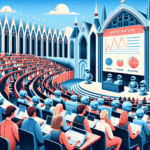In today’s rapidly evolving world, a quiet revolution is reshaping the very nature of work and expertise. The integration of advanced AI tools into fields once dominated by human intuition is unbundling long-established roles and creating entirely new forms of collaboration between man and machine.
Across industries—from legal and medical to financial and technical—the intense pressure to deliver faster, more accurate outcomes has led organizations to reimagine how traditional tasks are performed. AI systems are not replacing experts outright; rather, they are augmenting the most routine and repetitive tasks. This transformation allows professionals to focus on complex decision-making and client relationships, even as the underlying work is streamlined through automation.
This shift is reminiscent of earlier industrial revolutions where tools, once instruments of exclusive craftsmanship, became widely accessible. In those eras, groundbreaking innovations democratized expertise, reshaped economies, and redefined professional prestige. Today, we witness a similar process unfolding as advanced AI platforms quickly process and analyze data at a scale no human can match.
The change is both subtle and profound. Organizations are increasingly deploying systems that intelligently pull together relevant information from multiple sources, provide deep analysis, and even suggest innovative solutions. This approach not only improves speed and efficiency but also ensures that errors are minimized—an important factor in industries where the stakes are incredibly high.
One of the most striking aspects of this evolution is the move from a reliance on historical “prestige” to a focus on performance and adaptability. When expertise is measured not solely by credentials or years of experience but also by one’s ability to integrate powerful AI tools into the workflow, the definition of a successful professional is transformed.
Companies and institutions that once prided themselves on centuries-old traditions of meticulous process are now embracing a mindset that values flexibility and the intelligent use of technology. In this brave new world, innovation and critical thinking go hand in hand with the practical strengths of generative AI systems, which continuously learn and update their knowledge based on the latest data.
As this transformation accelerates, the landscape of work will inevitably continue to change. Roles that were once bolstered by layers of hierarchical expertise might soon evolve into more dynamic, fluid positions where human intuition guides powerful AI-driven engines. Those who learn to work alongside these systems will find themselves at the forefront of a new era, one defined by rapid discovery and adaptive problem solving.
Ultimately, the integration of AI is not a sign of obsolescence but an opportunity for reinvention. Embracing these changes means not only increasing efficiency but also fostering an environment where human creativity and machine precision can thrive together. The future of work lies in this balance—an era where technology and talent coalesce to push the boundaries of what we once thought was possible.

